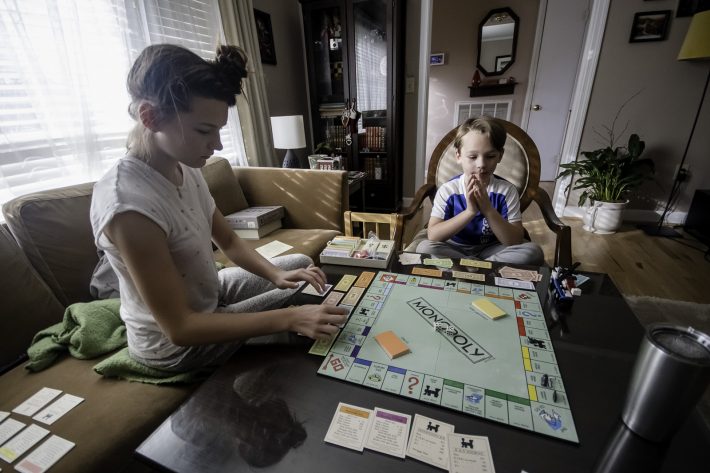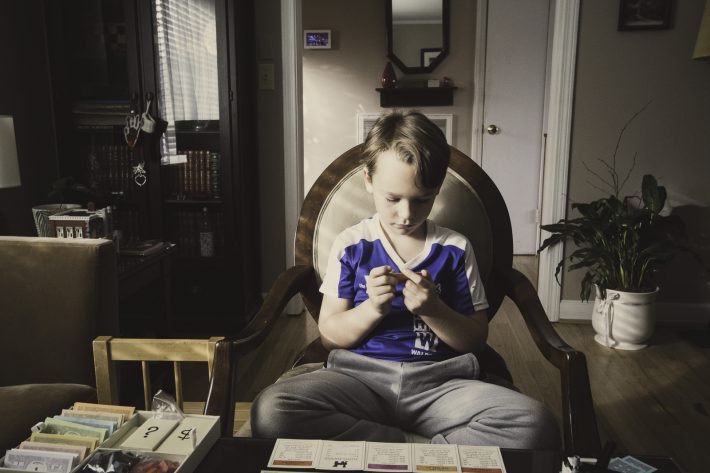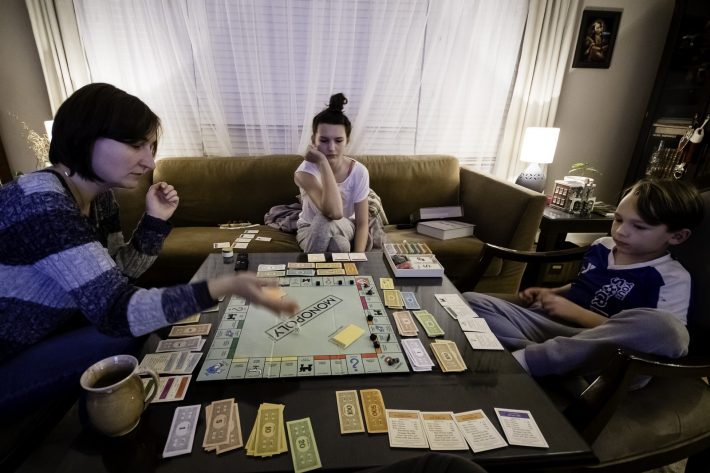I’ve never really been a fan of Monopoly. After about the age of ten or eleven, I determine that there was too much chance involved, and I just found it frustrating. I never played it after that.
As an adult, though, I’ve come to recognize that there is a fair amount of chance in life that just sucks money from one’s bank account. Medical emergencies, car repairs, accidents, home issues, and the like — all unplanned, all expenses.
When the Girl got Monopoly for Christmas this year, I knew I’d end up playing it with the kids. I didn’t realize how much fun it could be as an adult who can simply look at it as a game that is a fairly accurate reflection of the frustrations of adulthood and, more importantly, as a game that can provide lessons to kids and time together as a family.
We played twice today. The first time, it was just the kids and I. It only took a moment for me to realize the value for a seven-year-old. He had to read, to count money, and occasionally make change.
L dominated us, and the Boy was hemorrhaging cash to a degree that he declared he was going to quit. We talked him down, but then K returned home and we set about to preparing and eating dinner.
Afterward, the kids wanted to play again, so we sat down as a family and began. I had a little strategy in mind that I wanted to test: quality, not quantity. I bought a bunch of properties quickly, then traded at exorbitant cost to myself three or four properties for the final street to make the orange set:
I then set about to building them up to two houses each as quickly as possible. The result: I was getting a couple of hundred bucks every few cycles of the board.
The Boy took a similar route: he ended up with all the railroads and soon was rolling in money.
Poor K was getting hit left and right: bad luck with Community Chest/Chance cards, bad luck with the dice (she must have landed on the luxury tax four or five times), and soon she was down to little cash and few unmortgaged properties.
Then I bought one more house for each of my properties and drawing $550-$600 from every poor player who landed on one of them. K finally landed on one, and it just about wiped her out.
Her reaction: she laughed. Our reaction: we laughed with her.
On our walk this evening, then, we were able to help E see that the most important thing in a game like that is just to have fun. “It’s just a game!”



